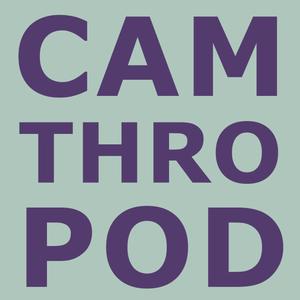Episode 34. Artery Episode 8: Rabab Chamseddine with Rebecca Appleton
Who is responsible for making a work of art? In each episode of this collaborative podcast series, one anthropologist, specialising in a particular cultural context, has a conversation with an artist of their choosing, exploring issues of authorship and responsibility in art. Ranging across geographical locations and creative practices, discussions address and unpack the conceptualisation of the artistic person, authorship as centred upon an individual or bounded group, and the development of responsibility for artworks during and after their making. Each episode brings a fresh perspective on where ideas come from, what agency an artist feels in the creation of their work, and how, and in which contexts, ownership and responsibility for the artwork are claimed. Ultimately, as a collection, the series encourages listeners to think about ‘the artist’ and ‘the artwork’ as dynamic processes in a relationship of authoring.
Episode 8 features Rabab Chamseddine with Rebecca Appleton
Rabab Chamseddine (b.1997, Abidjan, Ivory Coast) is a Lebanese (spoken word) poet and film-maker based in Tyre and Beirut, Lebanon. She is currently completing her master’s in Literature at the American University of Beirut. Her poetry unfolds as an exploration of the bilateral theme of love and loss, and the poetics of meaning-making that emerge between them, in that very space of mourning, in Beirut. Chamseddine began her spoken word poetry journey in 2017 by partaking in poetry nights hosted in the hubs and communal cafes of Beirut, to later become the winner of Beirut Poetry Slam 2018. Her work will be appearing in an anthology entitled We Call to the Eye and the Night: Love Poems by Writers of Arab Descent (Persea Books), edited by Hala Alyan and Zeina Hashem Beck, as of spring 2023.
Find her on Instagram @ rababchamseddine
Rebecca Appleton is a postgraduate researcher in the Department of Social Anthropology at the University of Manchester. She is currently undertaking PhD research about the politics of contemporary women’s poetry in Beirut, Lebanon. The project researches the emerging and evolving performance and politics of women’s poetry in Beirut, focussing on poetry’s capacity to generate alternative spaces for personal, social, political, and gendered expression as the city negotiates crises.
Artery is a podcast organised by Iza Kavedžija (University of Cambridge) and Robert Simpkins (SOAS, London) and supported by the AHRC.
Music: Footsteps, by Robert Simpkins.
5 February 2024, 3:04 pm
